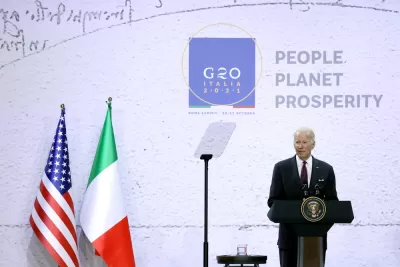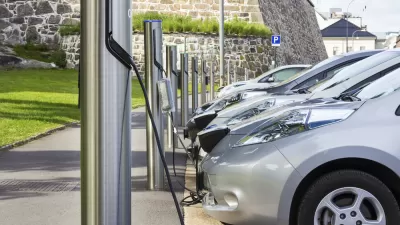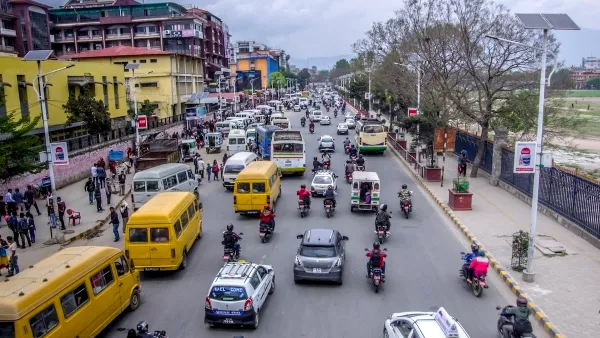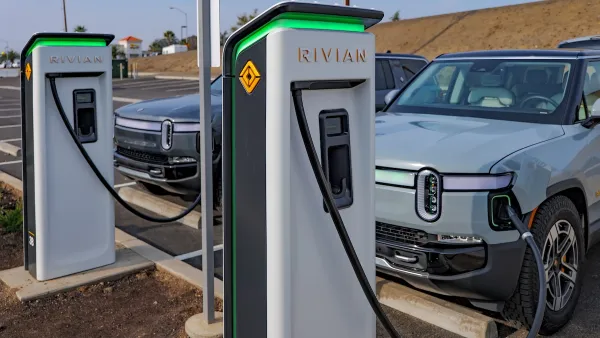President Biden signed an executive order on Wednesday that aims to cut 65 percent of the government's carbon emissions by the end of this decade and reach carbon neutrality by 2050.

An article by Anna Phillips for The Washington Post broke the news on Wednesday before President Biden signed the executive order, but details were already available. Biden aims to leverage the federal government's buying power to lower emissions, creating a fleet of electric vehicles, upgrading federal buildings, and changing the government's practices for buying electricity.
"Under the new approach, federal operations would run entirely on carbon-free electricity by 2030. By 2035, the government would stop buying gas-powered vehicles, switching to zero-emission heavy-duty trucks and cars. A decade after that, most of the buildings owned or leased by the government would no longer contribute to the carbon pollution that’s warming the planet," writes Phillips.
"The order also instructs the government to launch a 'buy clean' initiative, prioritizing products produced and transported with low greenhouse gas emissions."
According to experts cited in the article, the effort to lower emissions generated by the government could move the needle in the broader economy as well—because of the size and scope of the federal government's buying power.
The article also notes that the plan put forth in the executive order will face substantial obstacles, including production delays, opposition from industries and the other side of the political aisle, and the cost to upgrade facilities.
FULL STORY: Biden wants to make federal government carbon neutral by 2050

Planetizen Federal Action Tracker
A weekly monitor of how Trump’s orders and actions are impacting planners and planning in America.

Restaurant Patios Were a Pandemic Win — Why Were They so Hard to Keep?
Social distancing requirements and changes in travel patterns prompted cities to pilot new uses for street and sidewalk space. Then it got complicated.

Map: Where Senate Republicans Want to Sell Your Public Lands
For public land advocates, the Senate Republicans’ proposal to sell millions of acres of public land in the West is “the biggest fight of their careers.”

Maui's Vacation Rental Debate Turns Ugly
Verbal attacks, misinformation campaigns and fistfights plague a high-stakes debate to convert thousands of vacation rentals into long-term housing.

San Francisco Suspends Traffic Calming Amidst Record Deaths
Citing “a challenging fiscal landscape,” the city will cease the program on the heels of 42 traffic deaths, including 24 pedestrians.

California Homeless Arrests, Citations Spike After Ruling
An investigation reveals that anti-homeless actions increased up to 500% after Grants Pass v. Johnson — even in cities claiming no policy change.
Urban Design for Planners 1: Software Tools
This six-course series explores essential urban design concepts using open source software and equips planners with the tools they need to participate fully in the urban design process.
Planning for Universal Design
Learn the tools for implementing Universal Design in planning regulations.
Heyer Gruel & Associates PA
JM Goldson LLC
Custer County Colorado
City of Camden Redevelopment Agency
City of Astoria
Transportation Research & Education Center (TREC) at Portland State University
Camden Redevelopment Agency
City of Claremont
Municipality of Princeton (NJ)





























